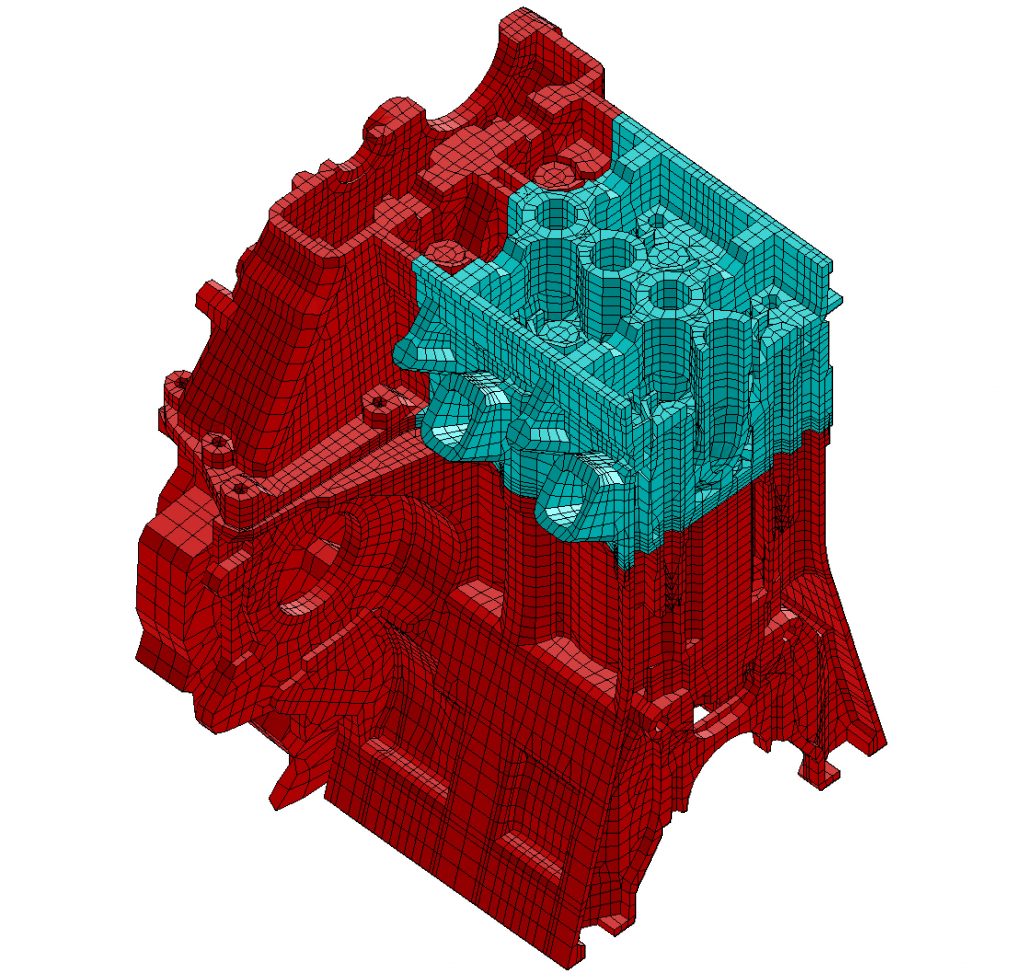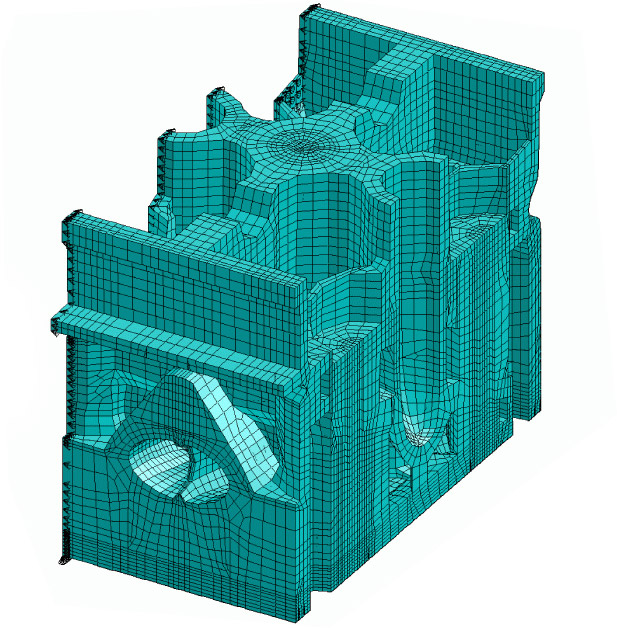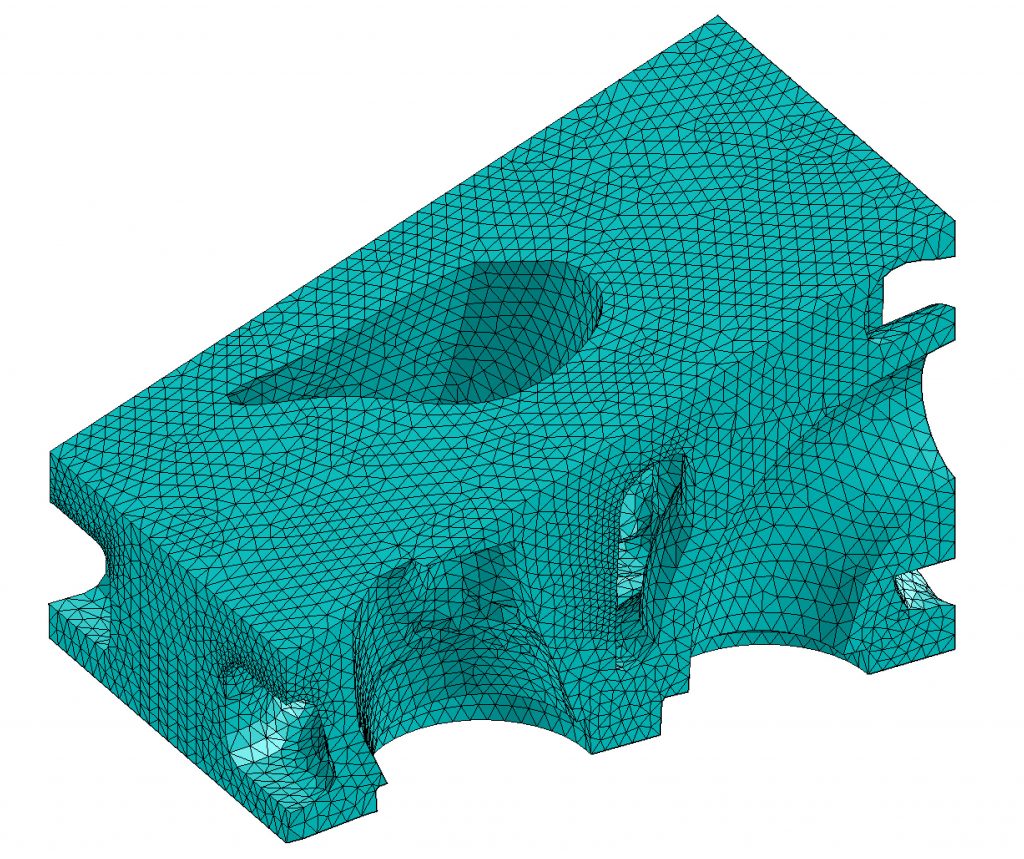Cylinder head residual stresses

The optimization of modern engines affects all components, including their manufacturing processes. Both the geometric shape and the material properties of the individual engine components are constantly being developed further.
The consideration of residual stresses resulting from the manufacturing process is now part of the development work.

In the present project, the residual stresses resulting during manufacture were calculated on the basis of cylinder heads. This requires thermo-mechanically coupled FEM calculations of the transient process.
The residual stresses arising during stress relief annealing and subsequent quenching are strongly dependent on the heat transfer that occurs. Thus, the determination of the location- and position-dependent heat transfer coefficients is of decisive importance.

Furthermore, the temperature-dependent material properties of the respective alloy are decisive for the result. The complete stress-strain curves of the aluminum alloys must be known from room temperatures to 500 °C. These were determined upstream of the project by hot tensile tests (Gleeble tests). These were determined upstream of the project by hot tensile tests (Gleeble tests).
With the help of the coupled simulations, significant differences regarding water quenching or air cooling could be determined.
The three pictures show the different models that were used, starting from the overall model down to a submodel of the cylinder head. For reasons of confidentiality, no results of the analyses can be shown.
